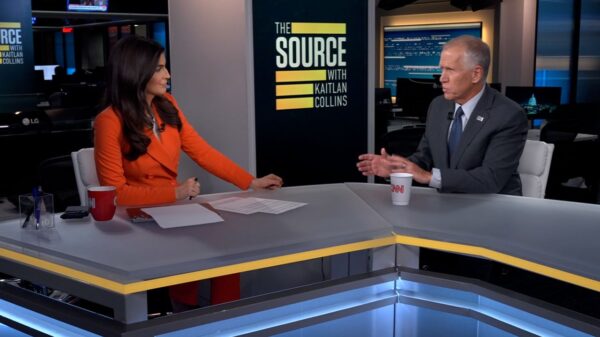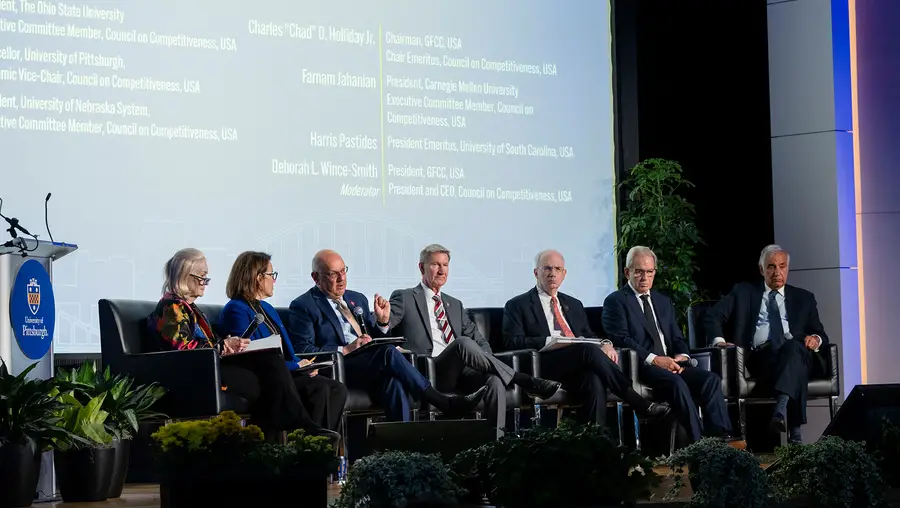UPDATE: Leaders from Carnegie Mellon University (CMU) and the University of Pittsburgh (Pitt) just convened a groundbreaking global summit on health, artificial intelligence, and technology in Pittsburgh. The event, titled Forging the Future: The Intersection of Health, AI, and Tech, is taking place this week and features prominent figures from academia, industry, and government discussing the urgent need for innovation in healthcare.
Kicking off with a powerful address from CMU President Farnam Jahanian and Pitt Chancellor Joan Gabel, the summit highlights Pittsburgh as a vital hub for transformative research and development. “Today, we are a city of eds, meds, and emerging tech,” Jahanian stated, underscoring the collaboration between private sectors and educational institutions that is driving economic growth.
In a pivotal session titled “The Health, AI, and Productivity Imperative: From University Research to Community Impact,” Jahanian emphasized the role of university-led research in enhancing productivity and health outcomes. He noted that CMU launched the first undergraduate degree in AI in 2018 and is actively integrating AI across its curriculum. “Within the next 10 years, we will see a fundamental shift in how we teach and learn,” Jahanian asserted, highlighting the potential for AI to improve educational outcomes for students of all ages.
The urgency of the summit is heightened by insights from CMU’s Vice President for Research Theresa Mayer, who joined international leaders to discuss how cities like Pittsburgh are fostering sustainable development through technology. Mayer referenced a significant energy and AI summit hosted by Senator Dave McCormick in July 2023, which attracted over 40 CEOs and five cabinet secretaries, resulting in over $90 billion in announced investments for Pennsylvania. “The future is bright,” Mayer proclaimed, calling for action to capitalize on Pittsburgh’s historical strengths.
As the event progresses, CMU’s Marsha Lovett will lead discussions on preparing the next generation of innovators. She will address the critical need for education systems to adapt and integrate AI effectively, emphasizing that education should be a lifelong pursuit. “Integrating AI means continuously monitoring how curricula prepare students and adjusting accordingly,” Lovett explained.
This summit is not just an academic exercise; it represents a significant moment for Pittsburgh and the future of health technology. As these leaders forge new pathways for innovation, the outcomes of their discussions could reshape how healthcare is delivered, making it more efficient and accessible.
Stay tuned for updates as this urgent story develops, and find out how the innovations discussed could impact healthcare on a global scale.





































































